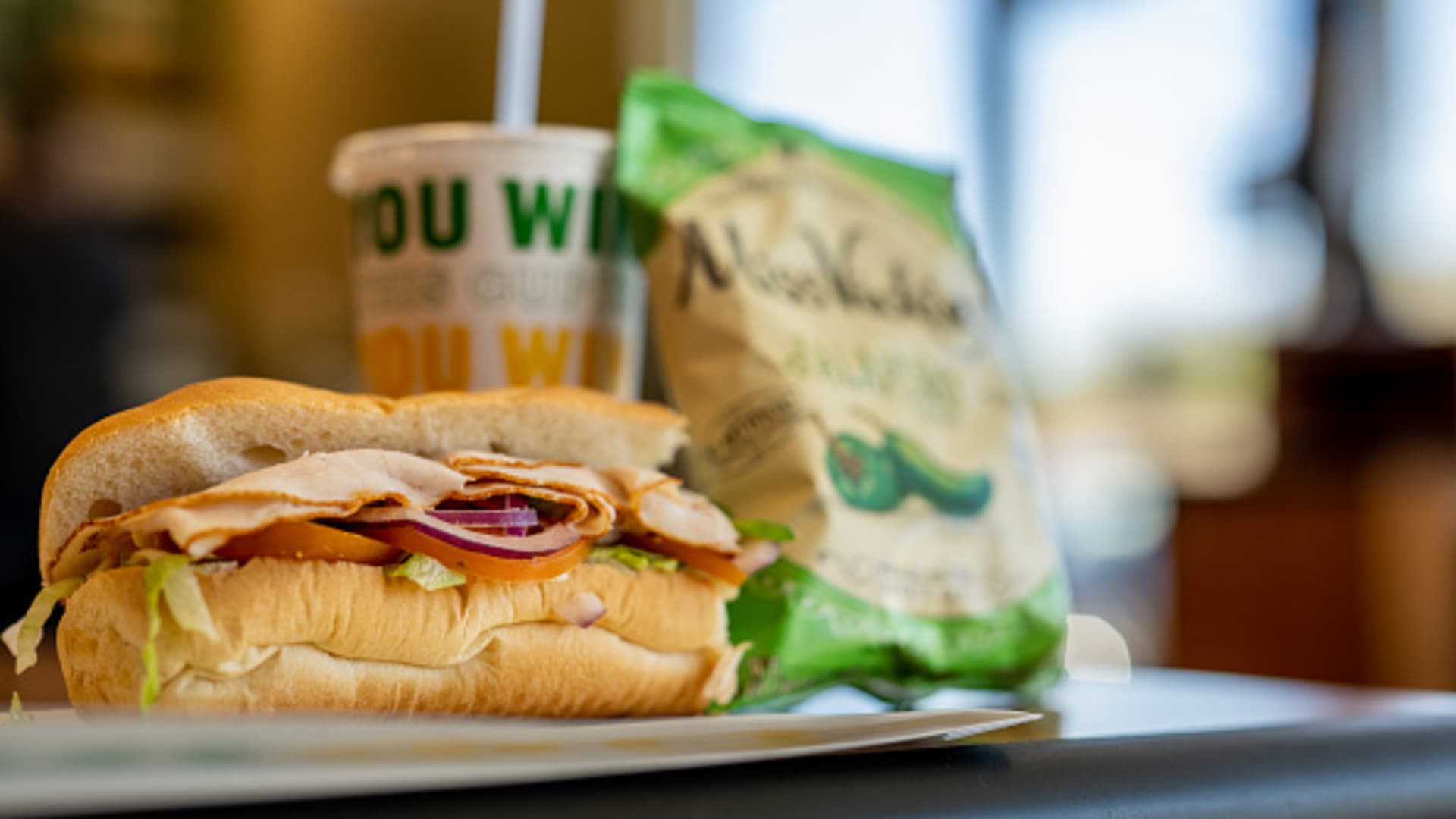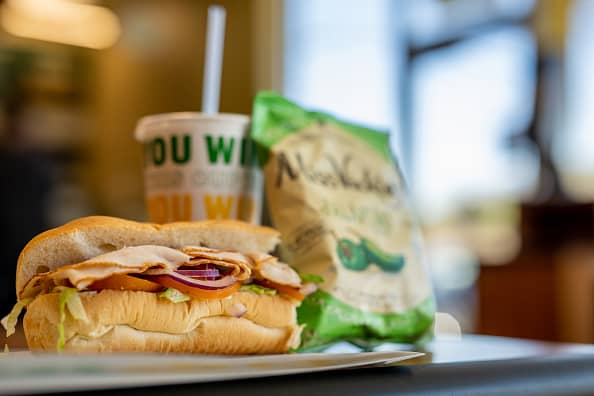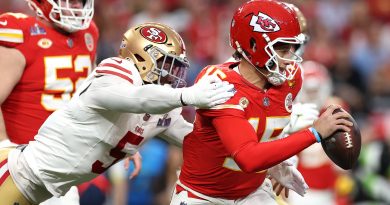Subway sandwich chain sells itself to private equity firm Roark Capital

In this photo illustration, a Subway meal is seen on a table at a Subway restaurant on January 12, 2023 in Austin, Texas.
Brandon Bell | Getty Images
Roark Capital is buying Subway, ending the sandwich chain’s more than five decades of family ownership and marking a new era for the struggling company.
The announcement Thursday ends the chain’s lengthy sale process, which publicly kicked off in February. Subway reportedly sought $10 billion, a high price that alienated many potential suitors like restaurant conglomerates, leaving only private equity firms to duke it out in an auction. Other reported bidders included TDR Capital and Sycamore Partners.
Subway and Roark did not announce a transaction price, but The Wall Street Journal reported Monday that the firm’s final bid was roughly $9.6 billion.
Roark’s current portfolio includes more than a dozen restaurant chains. Subway dwarfs all of them by number of restaurants, and brings in more annual sales than all but Dunkin’.
Through holding company Inspire Brands, Roark owns Dunkin’, Baskin-Robbins, Sonic, Arby’s, Buffalo Wild Wings and Jimmy John’s. Separately, housed under Focus Brands, the firm owns Auntie Anne’s, Carvel, Cinnabon, Jamba, McAlister’s, Moe’s Southwest Grill and Schlotzsky’s. Roark also invested $200 million in the Cheesecake Factory during the early days of the Covid pandemic to help the struggling chain stave off insolvency.
“In essence, Roark brings more to the table than other investors would have, and while the deal closed based on cold hard cash, the outcome is a good one,” Neil Saunders, a retail analyst and managing director of GlobalData analytics, wrote in a note.
Roark plans to keep Subway as a separate entity within its portfolio, Subway CEO John Chidsey told the Journal.
Subway has been trying to turn around its business under Chidsey, who joined the company in 2019. The company has revamped its menu, recruited new franchisees and invested in technology. In the first of half of the year, its same-store sales climbed 9.8%, showing that the turnaround may be taking hold.
“This transaction reflects Subway’s long-term growth potential, and the substantial value of our brand and our franchisees around the world,” Chidsey said in a statement Thursday.
Founded in 1965 by Fred DeLuca and Peter Buck, Subway grew from a single sandwich shop in Connecticut to a global restaurant giant.
But for roughly a decade, the company’s sales have fallen. Its popular $5 footlong sandwich deal and aggressive development put pressure on franchisees’ profits. The chain was hurt further by the high-profile trial of former spokesman Jared Fogle and the death of CEO DeLuca, which both occurred in 2015.
Subway ended 2022 with roughly 20,600 locations open in the U.S., down from its peak of 27,100 in 2015, according to franchise disclosure documents. While the chain is still closing franchised locations, the pace has slowed down considerably. The chain shuttered 571 units last year, down from the more than 1,600 restaurants it closed in 2020.
DeLuca’s half of the company was left to his family after his death. Buck, who died in 2021, bequeathed his to a charity run by his sons. Chidsey told Restaurant Business Online that he convinced the two families to consider selling the company.
Source – CNBC




